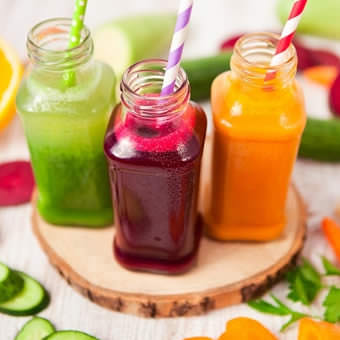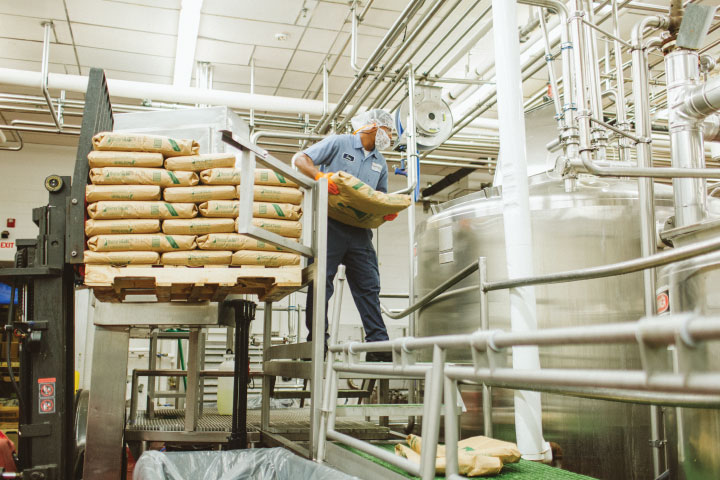Introduction
In today's rapidly developing food industry, services are seeking lasting services to meet the expanding demand for quality food products while minimizing their ecological impact. Contract food manufacturing has actually become a feasible choice for companies wanting to outsource their production needs while preserving control over item growth as well as quality assurance. This post discovers the idea of contract food manufacturing in Australia and its function in promoting sustainability within the food industry.

The Increase of Contract Food Manufacturing in Australia
Understanding Agreement Food Manufacturing
Contract food production is a strategic collaboration in between a brand name proprietor and an agreement maker, where the last produces items in support of the former. This arrangement permits brand proprietors to focus on advertising, item growth, as well as circulation while leveraging the knowledge and also sources of specialized agreement manufacturers.
Benefits of Agreement Food Manufacturing
Cost Effectiveness: Contract food manufacturing removes the requirement for considerable capital investments in facilities, devices, and also manpower. This cost-saving step permits brand names to allot their sources in the direction of various other vital locations of business growth. Scalability: As demand for a specific product varies, contract suppliers can quickly adjust production levels to suit market demands. This adaptability ensures that brand names can satisfy consumer demand without excess inventory or wastage. Expertise and Technology: Contract makers frequently possess comprehensive knowledge and also experience in certain food categories or procedures. By collaborating with these professionals, brands can tap into their creative thinking as well as harness innovative services for item growth and improvement. Quality Guarantee: With stringent quality control actions in place, contract suppliers follow sector criteria and governing requirements. This dedication to excellence ensures that brands provide secure as well as top quality items to customers consistently. Supply Chain Management: Contract food manufacturing simplifies the supply chain by settling production, packaging, labeling, and distribution under one roof. This integrated approach lessens logistical intricacies and enhances overall functional efficiency.The Ecological Influence of Agreement Food Manufacturing
Reducing Carbon Footprint
Contract food production offers possibilities to reduce the environmental influence of food production with numerous ways:
Efficient Source Usage: Contract makers optimize source usage by applying energy-saving techniques, minimizing water usage, and also reducing waste generation. These sustainable actions contribute to a reduced carbon impact throughout the whole manufacturing process. Locally Sourced Active ingredients: By sourcing components from local distributors, agreement makers minimize transportation ranges and also connected emissions. This method supports regional economies while advertising sustainability within the supply chain. Eco-Friendly Packaging: Agreement food producers highlight using environmentally friendly product packaging materials, such as naturally degradable or recyclable options. This commitment to lasting product packaging minimizes waste and promotes responsible consumption.Embracing Eco-friendly Energy
Contract food manufacturing facilities in Australia are significantly adopting renewable resource sources to power their operations. Solar panels, wind turbines, as well as other tidy power options help reduce dependence on fossil fuels and also contribute to a contract food manufacturing gold coast greener future for the industry.
Addressing Sustainability Obstacles in Contract Food Manufacturing
Waste Management as well as Reusing Initiatives
Contract food producers focus on waste management via thorough recycling programs and also waste reduction approaches. By carrying out efficient waste partition systems, firms can draw away significant quantities of waste from landfills as well as promote a round economy.
Water Preservation Measures
Water shortage is a worldwide concern, and also agreement food makers play their part in resolving this challenge. Firms buy water-saving modern technologies, such as advanced filtering systems and also water reuse initiatives, to minimize their freshwater consumption.
Collaboration with Sustainable Suppliers
Contract food suppliers proactively seek partnerships with vendors dedicated to lasting methods. By focusing on ecologically conscious suppliers, these firms make certain that their whole supply chain straightens with sustainability goals.
FAQs
What is contract food manufacturing? Contract food manufacturing describes the outsourcing of food manufacturing to specialized makers who create products in support of brand owners.
How can contract food manufacturing advantage companies? Contract food manufacturing offers cost efficiency, scalability, knowledge, as well as quality control to brand names aiming to focus on advertising as well as distribution.

How does contract food manufacturing advertise sustainability? By maximizing source usage, welcoming renewable resource, and executing waste management and also recycling campaigns, contract food manufacturing lowers its environmental impact.
What are some lasting product packaging alternatives in contract food manufacturing? Environment-friendly product packaging products such as biodegradable or recyclable choices are frequently utilized in contract food manufacturing to decrease waste.

How do contract food makers preserve water? Contract food manufacturers invest in water-saving modern technologies as well as execute water reuse initiatives to minimize their freshwater consumption.
What role does collaboration with lasting providers play in contract food manufacturing? By partnering with environmentally aware providers, contract food producers make sure that their whole supply chain straightens with sustainability goals.
Conclusion
Contract food manufacturing presents a lasting service for companies seeking to satisfy the expanding demand for top quality food products while decreasing their environmental influence. By leveraging the knowledge of specific makers and taking on eco-friendly methods, brand names can add to a greener future for the Australian food industry. Accepting sustainability not only profits the setting however additionally improves brand name reputation and consumer rely on an increasingly mindful market.